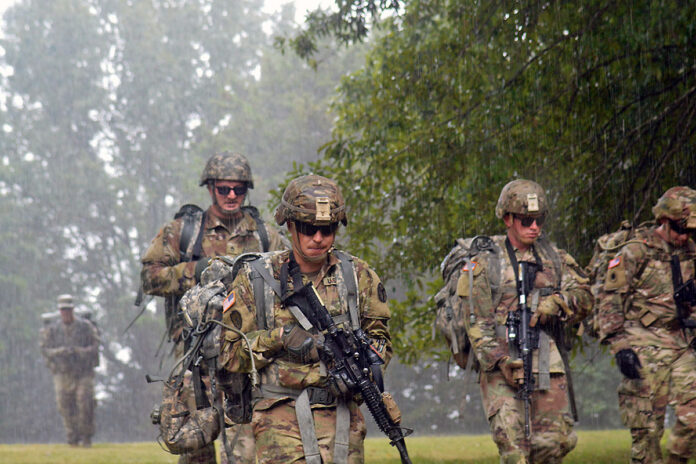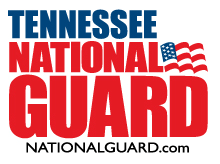 Smyrna, TN – Soldiers from various units of the Tennessee Army National Guard participated in the First Line Leadership Course pilot at Smyrna’s Volunteer Training Site, September 13th-18th, 2021. The primary goal of the course is to strengthen the level of technical and tactical knowledge of first-line leaders within the Tennessee Army National Guard.
Smyrna, TN – Soldiers from various units of the Tennessee Army National Guard participated in the First Line Leadership Course pilot at Smyrna’s Volunteer Training Site, September 13th-18th, 2021. The primary goal of the course is to strengthen the level of technical and tactical knowledge of first-line leaders within the Tennessee Army National Guard.
Tennessee’s State Command Sgt. Maj. Dale Crockett proposed the creation of a course focusing on small-unit leadership. Crockett communicated his vision to Smyrna’s 117th Regimental Training Institute and together, they developed and implemented the pilot course.
The course curriculum included briefings by senior noncommissioned officers on the importance of being engaged and decisive leaders. They received refresher training on proper vehicle maintenance, tactical squad movement, and medical evacuation procedures. In addition, the students were instructed on the importance of military range safety, with many becoming certified range safety officers during the course.
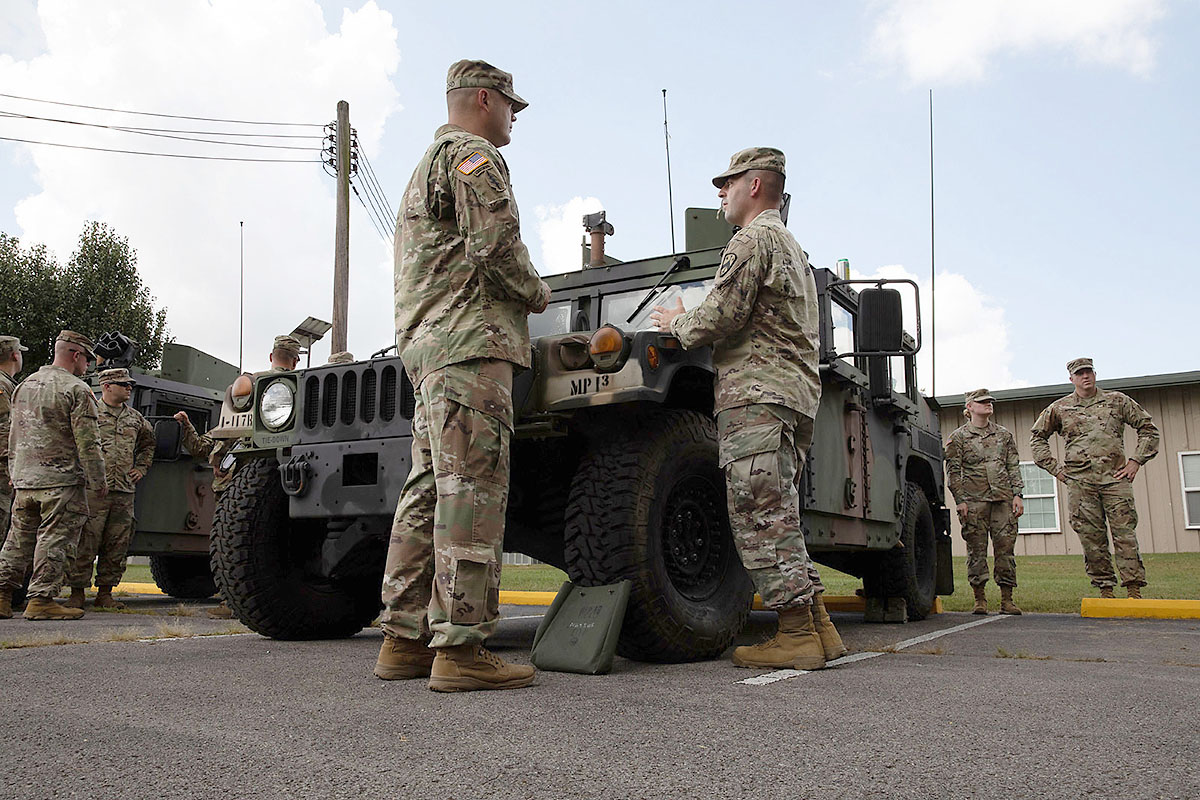
The students were introduced to many of the Guard’s administrative functions that allow for them to better assist their Soldiers. They received presentations on submitting award recommendations for their Soldiers, the expansion of the National Guard’s education benefits, and the organizational structure of the Tennessee National Guard.
They were also briefed on the critical role that first-line leaders have in ensuring that all Guardsmen could serve the state without fear of discrimination and sexual assault.
“A lot of the incentives that were presented during this course were new to me,” said Staff Sgt. Tamecca Johnson, a unit supply specialist with Nashville’s 105th Personnel Company. “The information on updated education benefits I can bring back to my Soldiers for them to use now.”
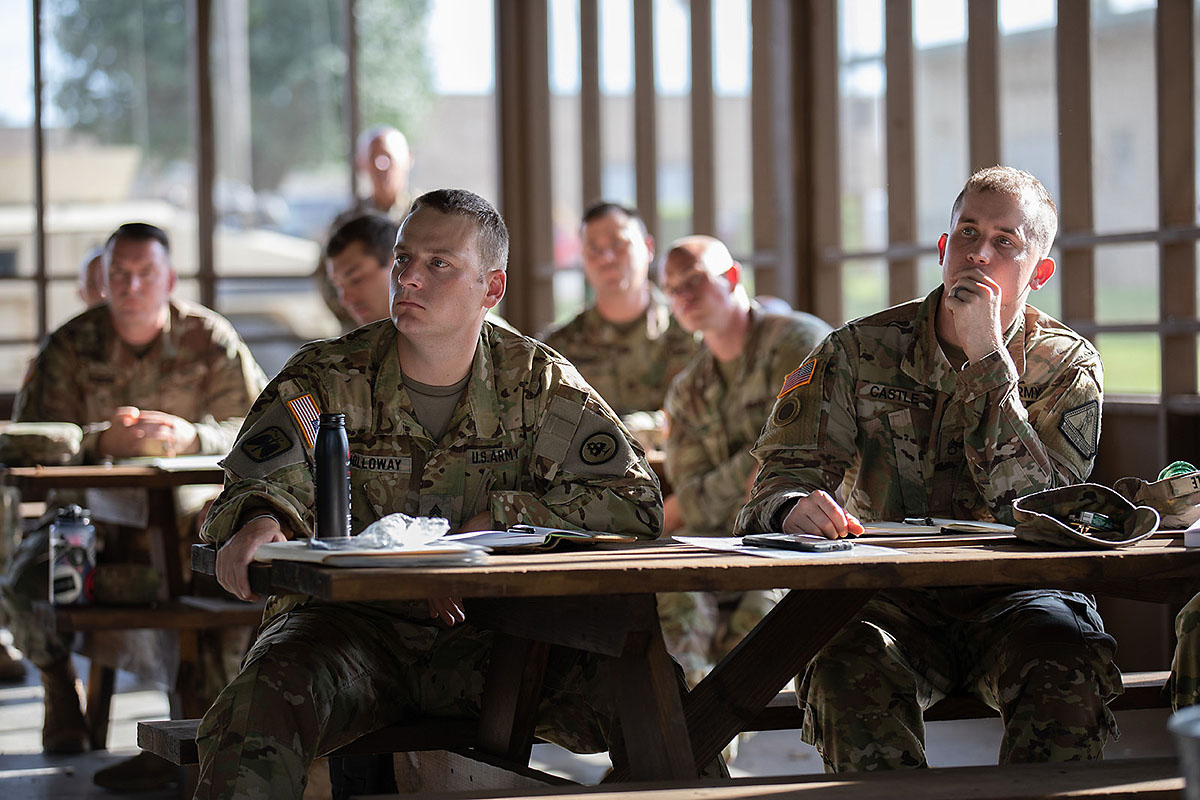
Maj. Gen. Jeff Holmes, Tennessee’s Adjutant General, addressed the course participants on September 16th. Holmes stressed the importance of the first line leader to the success of the Tennessee Army National Guard, fielded questions on various topics, and advised them to utilize this course as an opportunity to build important professional relationships with their peers. He also encouraged the students to place the needs of the Soldiers as a top priority as they progress through their military careers.
“You have a huge responsibility. All of you are at that pivotal point in your careers where you are leading versus being led,” Holmes said. “Making that transition has to be a conscious effort.”
Crockett pointed out how having staff noncommissioned officers conduct the training helped both the instructors and the students. He noted how having staff noncommissioned officers serve as course instructors bolstered their ability to teach Soldiers while also providing the course participants an opportunity to observe military instruction firsthand.
“There’s no better way to learn than to teach,” said Crockett. “While the instructors are teaching these Soldiers, they are also learning methods to train their Soldiers more effectively.”
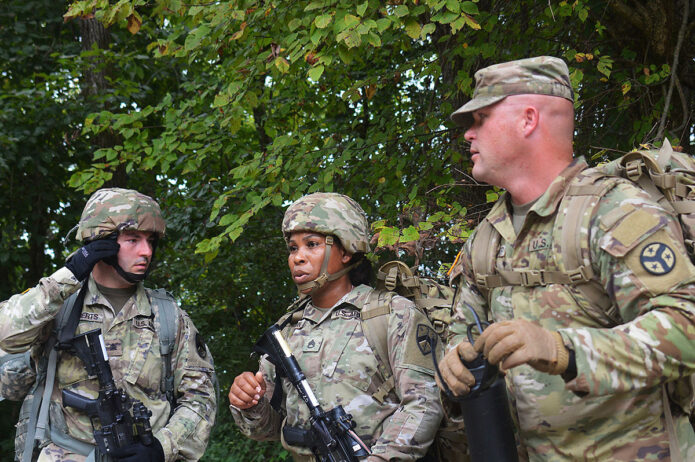
Among the goals for the pilot was to get feedback in order to shape future courses. At the end of each day, the participants gave their assessments on the training they received. They highlighted what they felt was effective and offered ideas on how to ensure the course could achieve its goal of developing first-line leaders. Feedback from this inaugural class will be utilized to refine future iterations.
“I’m really looking forward to the evolution of this course,” said Crockett. “Every time that we conduct it, we’re going to refine and make it better. That process is going to be based on the feedback we get from students, instructors, and senior leaders. Their input will give us an idea of how we are going to refine this training for the next class.”

